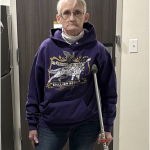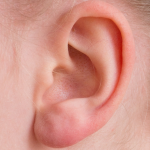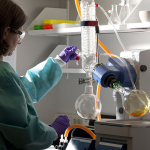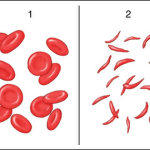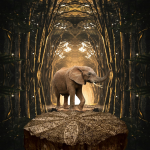Ever wondered if your TV marathon could be linked to those annoying trips to the bathroom? A recent study dives into the association between TV watching and nocturia – the habit of waking up at night to urinate. Is it worth sacrificing an extra hour of TV for a good night's sleep?
Disease
Tinnitus, the rockstar of auditory annoyances, is a buzzing, ringing, or tone that only you can hear. It's a party trick your brain plays on you. But science now offers a new-age solution: jamming to tones while tickling your tongue. And guess what? It's an FDA-approved medical device.
Some time ago I asked (via Twitter) if people knew of cases where hospice patients were being underprescribed opioid pain medications. Many did. But one story stood out. You'll see why. Meet Laurie Engel.
When you sit for a blood pressure reading, where is the best place to measure it? An article in the Washington Post suggests that the doctor's office, for several reasons, might not be the best place to collect the most accurate readings. Here are the factors to consider – and possibly raise with your doctor.
These days, age is a topic more debated than just deciding what to watch on streaming services. As we navigate the labyrinth of declining physical and mental prowess, let's dive into the quantifiable quirks of frailty and the slippery slope of cognitive dysfunction.
Lloyd Austin returned to the hospital for complications following his prostate surgery for cancer. African Americans have the highest incidence of prostate cancer in the world. For many, it doesn't have the relatively indolent course that's commonly described as the most common cancer in men (excluding skin cancers).
Hearing loss, frequently due to exposure to loud noises, is a significant health problem. Its biological underpinning may well be due to what we consider a trace mineral: zinc.
The advances in medical practice since World War II have been stunning, and they continue apace. Here, I anticipate some that I think are likely to make significant contributions in the near future.
“Electronic cigarettes are the most used tobacco products among youths in the U.S.” So begins a new report in JAMA Network Open. Given all the attempts to reduce use, how are we doing?
The arrival of the next pandemic is a matter of when, not if. In order to be prepared for it, we will need government-funded basic science in universities and the collaboration of drug companies experienced in vaccine research and development. A "universal" vaccine – one that protects against infections by both existing and new variants – would be an important advance.
The advances in medical practice since World War II have been stunning, and they continue apace. Some of the existing and anticipated ones are discussed here and in Part 2.
The concept of an elephant's graveyard, where old elephants supposedly go to die, is more of a myth than a scientifically supported phenomenon. Humans do not have a specific location where we gather to die, but a study looks into the matter nevertheless.


